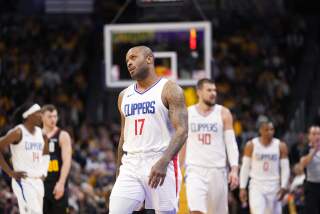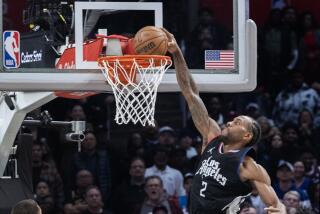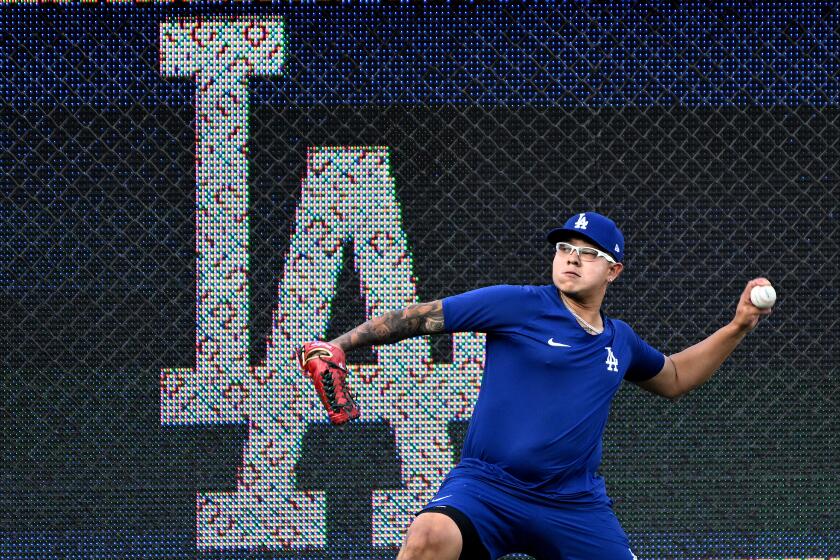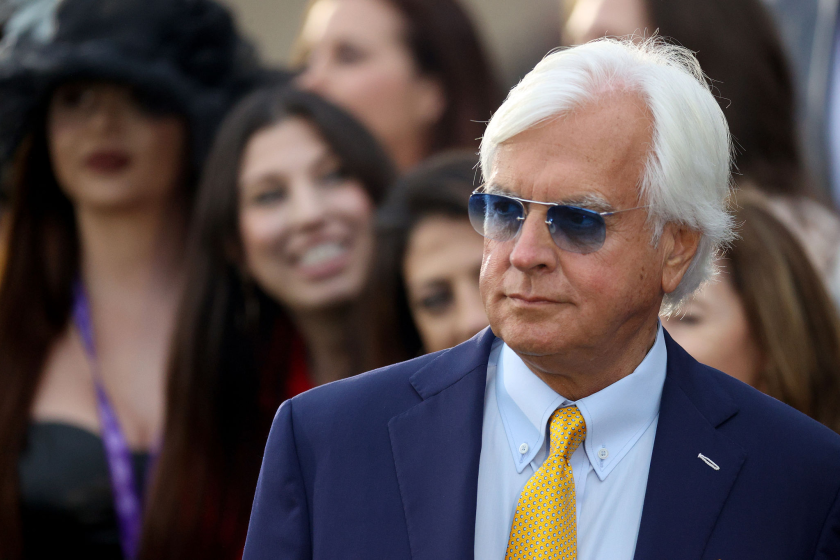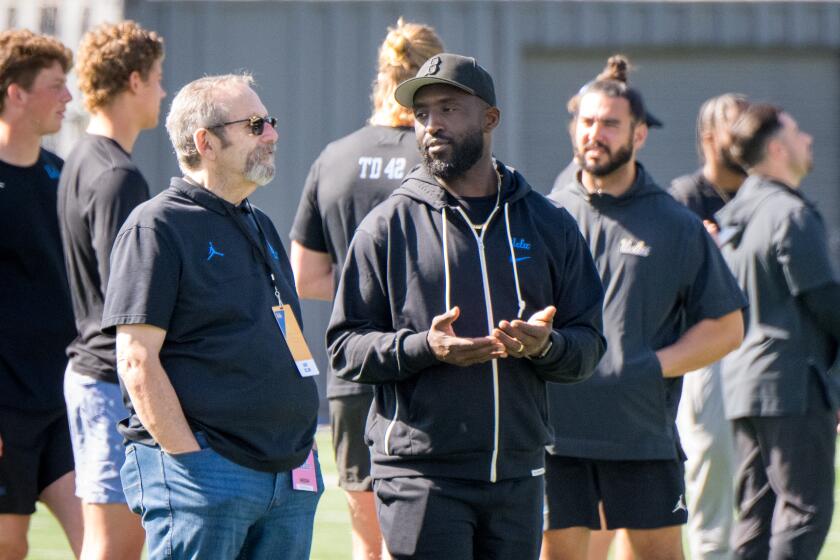Donald Sterling says Clippers could increase in value
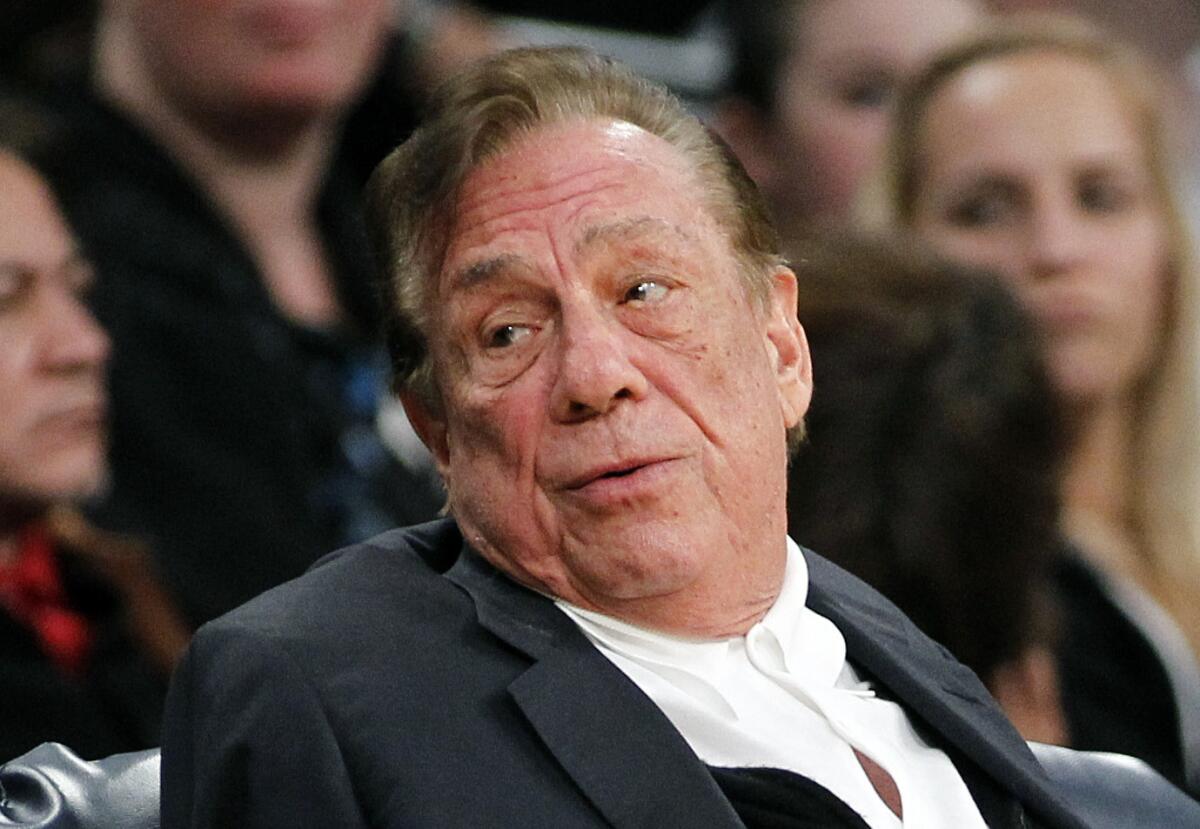
Rejecting his wife’s contention that the Clippers must be sold immediately so that their value will not be diminished, Donald Sterling argued in court papers filed Monday that “it is equally or more likely that with the passage of time the Clippers will be worth more than the amount now being considered.”
Shelly Sterling sold the NBA team late last month to former Microsoft Chief Executive Steve Ballmer for a record $2 billion, but her husband says the transaction was not legitimate and should not go through.
The couple’s lawyers are scheduled to appear in a Los Angeles probate court Monday afternoon for an initial hearing into whether Shelly legitimately ousted Donald Sterling as a trustee of the family trust — a key maneuver in her quick sale of the team.
Shelly Sterling, 79, asked for expedited action by the court, saying that a delay would cost her and her husband the family trust money, as the value of the Clippers would undoubtedly decline with continued uncertainty about who controls the team.
NBA Commissioner Adam Silver fined Donald Sterling $2.5 million, banned him for life from the league and moved to force the longtime owner to sell following the release of recorded comments in which Sterling asked a companion not to bring black people to Clippers games.
Lawyers for Sterling, 80, will ask Superior Court Judge Michael Levanas to postpone the hearing one month from its proposed July 7 start. They say that Sterling’s key expert witness, dementia expert Jeffrey L. Cummings, will be out of the country for much of July and unavailable on the currently scheduled hearing date.
In another new wrinkle introduced in his court filings Monday, Sterling argued that a crucial provision left out of the family trust should be restored. The provision said that if either of the Sterlings were “booted out” as a trustee because of mental incapacity—as Sterling was on May 29 by his wife—that person should have an opportunity to be reinstated by producing contrary medical evidence. That provision was inadvertently omitted when the trust was restated in recent years, Donald Sterling argues.
Shelly Sterling asserted her control of the family trust on the same day she sold the Clippers to Ballmer. She cited reports by two psychiatrists, who said that her husband showed early signs of Alzheimer’s disease or another brain ailment and performed poorly on mental capacity tests. To leave Donald Sterling as a trustee would be to expose both Sterlings and their trust to potential harm, the doctors argued.
Sterling’s court documents rebut those claims and say that his wife of 58 years, Shelly Sterling, “has fabricated and implemented this disingenuous basis to override [Sterling’s] valid objections to such sale” of the team. The papers add that Sterling “was induced to submit to medical examination under false pretenses” with his wife getting him to meet “with doctors she hired based on fraudulent representations.” Sterling argues that the “medical conclusions themselves were induced by undue influence and were wrong at the time rendered and continue to be wrong.”
Donald Sterling presented a list of 14 potential witnesses for the hearing. They include Shelly Sterling; Andy Roeser, the longtime Clippers executive who was placed on leave during the recent furor; Douglas Walton, lawyer for Sterling’s real estate business; and Stephen Mayberg, a psychologist who is the former director of the California Department of Mental Health.
More to Read
Get our high school sports newsletter
Prep Rally is devoted to the SoCal high school sports experience, bringing you scores, stories and a behind-the-scenes look at what makes prep sports so popular.
You may occasionally receive promotional content from the Los Angeles Times.
